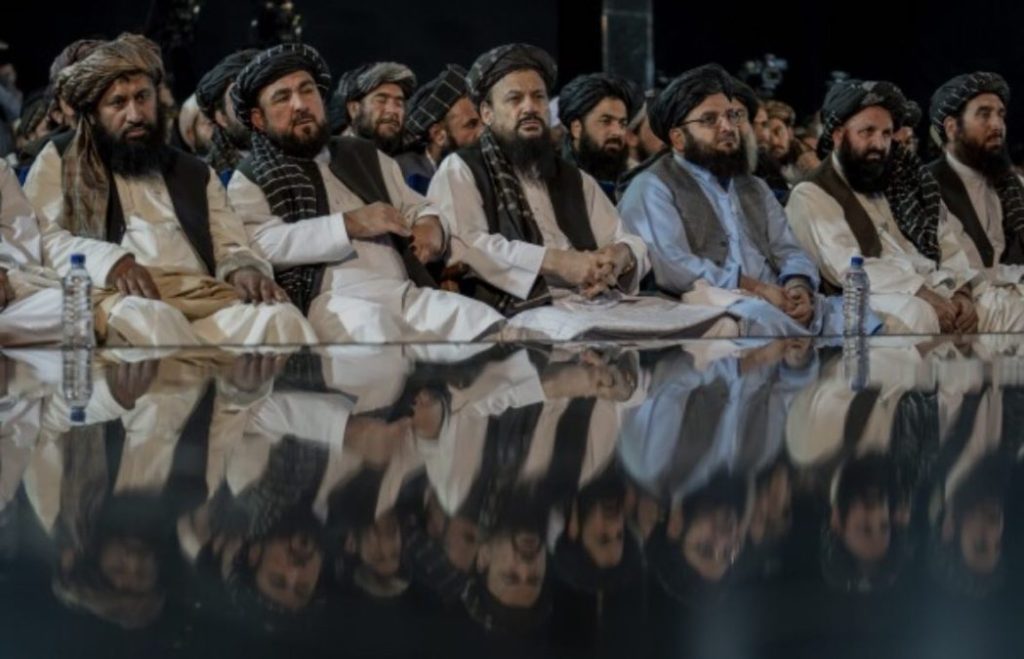Kabul in the Silence of Nationwide Internet Outage in Afghanistan: A Sign of Internal Control or a Curtain over Hidden Interactions
Taliban Cut the Internet, America Returns
According to IranGate News Agency, the sudden and repeated internet outages in Afghanistan have once again placed the country in the center of international observers’ attention.
While the Taliban describe this action as part of internal security measures, some analysts believe these communication blackouts could be linked to more complex geopolitical movements, ranging from efforts to counter U.S. influence to secrecy in behind-the-scenes negotiations with Washington. This report examines the less visible dimensions of this event by exploring contradictory yet overlapping scenarios.
Internet Outage in Afghanistan: Internal Control or Geopolitical Secrecy
The sudden and repeated internet outages in Afghanistan in recent months have not only raised domestic concerns regarding free access to information and citizens’ right to communication but have also sparked fundamental questions about the nature and motives behind this decision.
Is this action the result of the Taliban’s independent policymaking, or should it be analyzed within the framework of regional interventions and trans-regional games?

This report attempts to provide an impartial examination of various scenarios and offer a deeper understanding of the potential movements of influential powers in Afghanistan.
1. Cutting Communications: A Tool of Governance or a Sign of Foreign Intervention
In many countries, internet shutdowns during specific times are used as a tool for crisis management, quelling unrest, or controlling public opinion.
However, in Afghanistan, where the Taliban government lacks broad international legitimacy and its domestic legitimacy is considered fragile, any sudden communication outage could carry messages beyond internal control.
Afghanistan currently is part of the competition among major powers, not only due to its geostrategic position but also because of security gaps and weak government structures that provide space for complex interventions.
In such a context, the internet is not just a technical tool but a strategic component in power equations.
2. First Scenario: De-Americanization of Communication with an Eastern Axis Focus
From the perspective of some analysts, the internet shutdown in Afghanistan could be seen as a deliberate effort to counter U.S. and Western influence. According to this scenario, the Taliban, with implicit support or consultation from powers like Iran, Russia, and China, blocks communications to control the free flow of information and create an environment conducive to establishing a new order where Western institutions’ influence is minimized.
This pattern is somewhat reminiscent of media policies in countries like North Korea or Turkmenistan, creating a closed, controlled, and ideological media space where only the government’s official narrative is allowed to surface.
In this environment, not only are internal oppositions and divides controlled, but the possibility of modeling global protests, organizing protest movements, or exposing internal violations is also reduced.
If it is assumed that the Taliban operates in close interaction with the Eastern Axis, this process could be part of a larger project to maintain a predictable but repressive regime neighboring China and Iran, a regime that, despite limited legitimacy, offers advantages like countering terrorism and preventing the return of Western forces to the region for regional powers.
3. Second Scenario: Covering Sensitive Operations and Hidden Interactions with the West
On the other hand, some signs could make a different scenario more plausible. In this view, the internet shutdown is not to distance America but to protect hidden collaborations with it.
In this framework, any interaction between the Taliban and the United States, especially regarding the possible reuse of Bagram Air Base or diplomatic and informational transfers, requires a completely secure and unobservable environment.
In such conditions, a nationwide internet shutdown is considered a protective layer for activities that are strategically sensitive and, in some cases, contradictory to the Taliban’s official positions.
This could include potential secret talks about unfreezing assets, easing sanctions, or anti-terrorism collaborations.
In this scenario, Bagram, as a focal point of America’s past presence in Afghanistan, still holds an important place in Washington’s strategy. Even without overt military return, the reconstruction or limited use of this base could be part of a deterrent strategy against China, Russia, and regional players.
4. Weighing the Scenarios: Taliban’s Logic towards America and the Region
By assessing the Taliban’s behavior over the past two years, it seems that the second scenario of hidden interactions with America carries more weight. The Taliban have repeatedly shown that despite anti-Western slogans, their main concern is reducing international pressures, unfreezing assets, and achieving some form of international recognition, albeit limited.
These goals are more in the hands of the United States than China, Russia, or Iran.
For this reason, the Taliban may accept some concessions in their hidden interactions, such as cutting communications and reducing internal transparency, to pave the way for strategic agreements.
In such a context, internet blackouts are not only a control tool but also a security cover that expands the maneuvering space for both sides.
5. Consequences: From Power Play to Limiting Civil Society
Regardless of the dominant scenario, the repetition of such blackouts has significant consequences. On one hand, civil society, independent journalists, human rights activists, and even startups are severely affected by this trend.
On the other hand, free access to information, one of the most important tools of social resistance and the formation of accountable institutions, is marginalized.
At a higher level, the continuation of this situation could create a form of informal balance among regional and trans-regional powers, transforming Afghanistan into a scene of silent but strategic competition.
Every time Kabul goes dark, not only are citizens’ communications cut off, but a sign of a security or political shift behind the scenes is displayed.
The Internet as a Tool of Geopolitical Competition
Ultimately, the internet shutdown in Afghanistan cannot be analyzed solely within the framework of the Taliban’s internal decision-making or regional pressures. The reality is that Afghanistan remains one of the hot spots of geopolitical competition among global powers.
In this competition, tools like the internet, air transport, military bases, and informational agreements go beyond their usual functions, becoming parts of a larger game.
In such conditions, analyzing any disruption in communication infrastructures should be done with regard to the movements of major powers, the logic of Taliban survival and interaction, and the possible path of future agreements or conflicts.
The internet shutdown in Afghanistan may appear to be an internal decision, but at its core, it could carry signs of major shifts at the regional and global levels.

